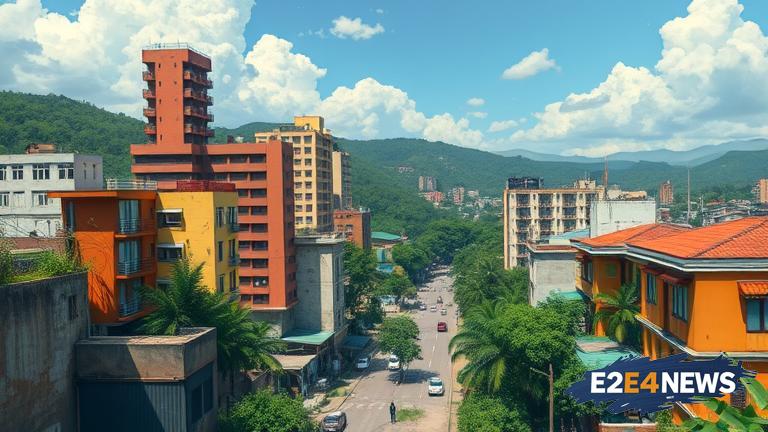The Brazilian government has rejected proposals to move the COP30 climate conference from its scheduled location in the Amazon city, despite concerns over soaring prices. The conference, set to take place in 2025, is expected to attract thousands of delegates and observers from around the world. However, the host city has seen a significant surge in prices for accommodation, food, and other services, leading to calls for the event to be relocated. The Brazilian government has argued that relocating the conference would be logistically and financially challenging, and would undermine the country’s efforts to promote sustainable development in the Amazon region. The government has also pointed out that the conference will provide an opportunity for the city to showcase its commitment to environmental protection and sustainable development. Despite these assurances, some critics have expressed concerns that the high prices will exclude many participants, particularly those from developing countries. The Brazilian government has announced plans to provide financial support to some delegates, but the details of this support have not been made public. The COP30 conference is seen as a critical moment in the global effort to address climate change, and the Brazilian government is keen to use the event to promote its own climate policies. The conference will focus on a range of issues, including deforestation, renewable energy, and climate resilience. The Amazon region is particularly vulnerable to the impacts of climate change, and the conference will provide an opportunity for experts and policymakers to discuss the challenges facing the region. The Brazilian government has also announced plans to launch a number of new initiatives aimed at promoting sustainable development in the Amazon region, including a new fund to support reforestation efforts. However, some critics have expressed concerns that these initiatives do not go far enough, and that more needs to be done to address the root causes of deforestation and environmental degradation in the region. The COP30 conference will be attended by representatives from over 190 countries, as well as thousands of observers from civil society, the private sector, and other stakeholders. The conference will provide an opportunity for these stakeholders to engage in discussions and debates about the global response to climate change, and to identify new opportunities for cooperation and collaboration. The Brazilian government has also announced plans to use the conference to promote its own climate policies, including its efforts to reduce deforestation and promote renewable energy. However, some critics have expressed concerns that the government’s policies do not go far enough, and that more needs to be done to address the scale and urgency of the climate crisis. The COP30 conference will take place over two weeks, and will feature a range of events and activities, including plenary sessions, side events, and exhibitions. The conference will also provide an opportunity for delegates to engage in negotiations and discussions about the global response to climate change, and to identify new opportunities for cooperation and collaboration. The Brazilian government has announced plans to provide a range of support services to delegates, including accommodation, transportation, and food. However, some critics have expressed concerns that these services will not be sufficient to meet the needs of all delegates, particularly those from developing countries. The COP30 conference is seen as a critical moment in the global effort to address climate change, and the Brazilian government is keen to use the event to promote its own climate policies and to showcase its commitment to sustainable development. The conference will provide an opportunity for experts and policymakers to discuss the challenges facing the Amazon region, and to identify new opportunities for cooperation and collaboration. The Brazilian government has also announced plans to launch a number of new initiatives aimed at promoting sustainable development in the Amazon region, including a new fund to support reforestation efforts. The conference will take place in a city that is known for its natural beauty and its rich cultural heritage, and the Brazilian government is keen to use the event to promote tourism and economic development in the region.





